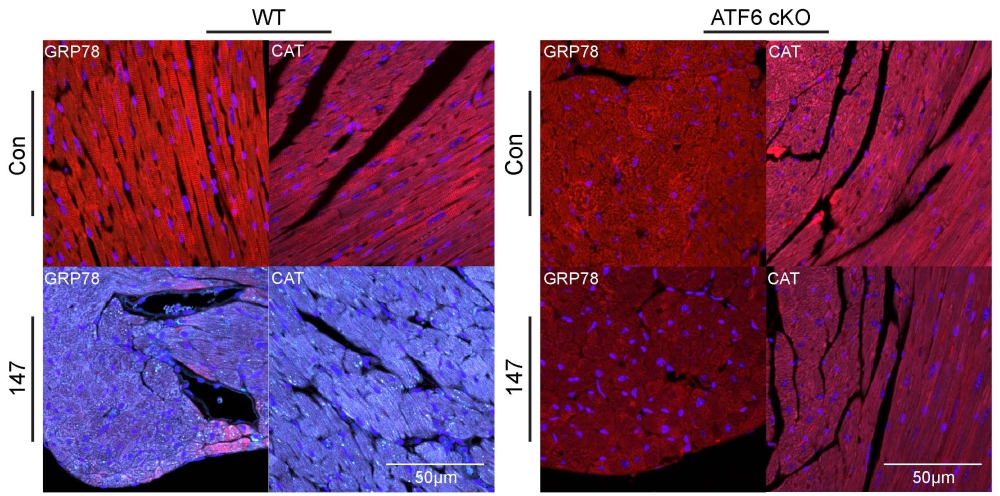Research Approaches

|
| Immunocytofluorescence confocal microscopy shows that the new drug candidate, code named 147, selectively activates the protective ATF6 target genes, catalase (Cat) and Grp78 in wild type (WT) mouse hearts, but not in the hearts of mice where ATF6 was selectively knocked out from cardiac myocytes (ATF6 cKO). Blackwood et al. (2019)Nat Commun. 10(1):187. doi: 10.1038/s41467-018-08129-2. PMID: 30643122. |